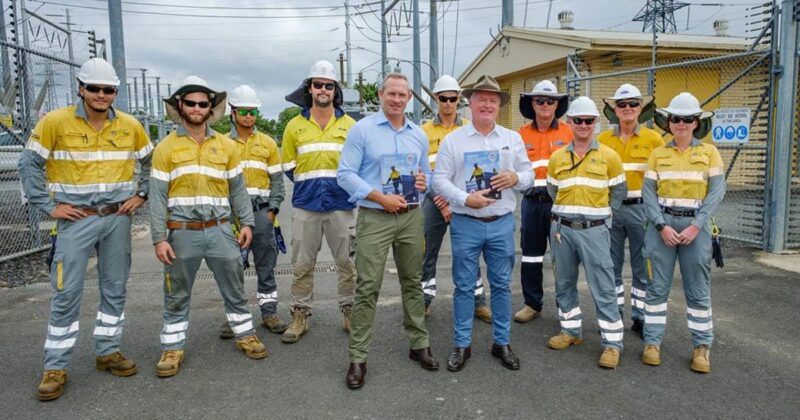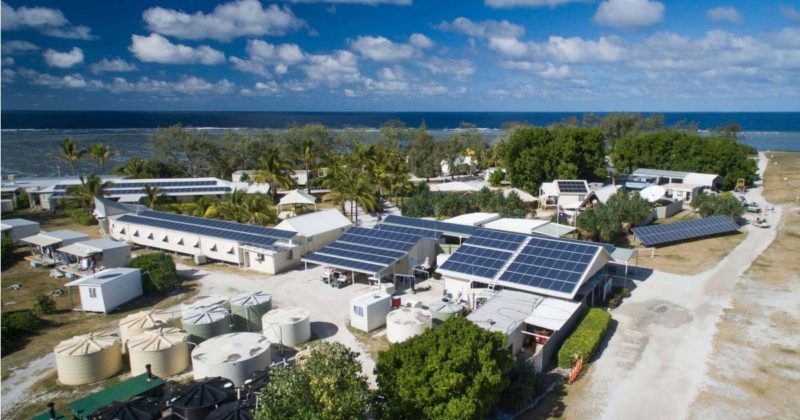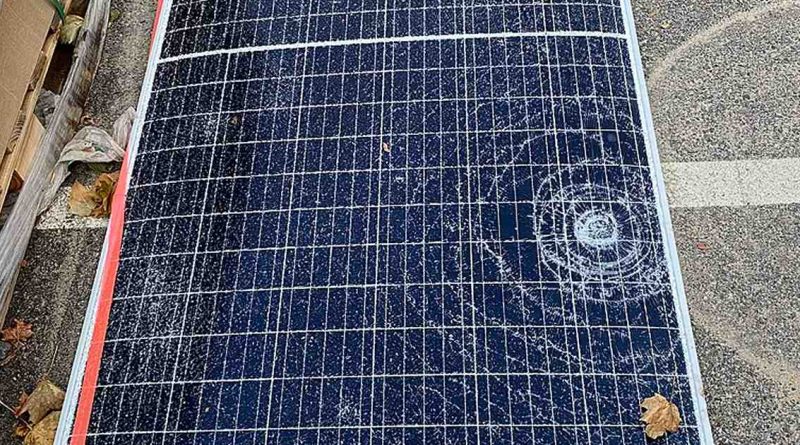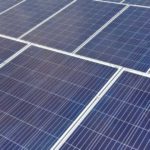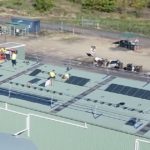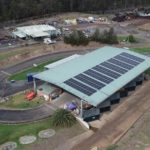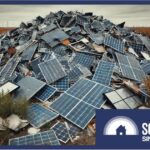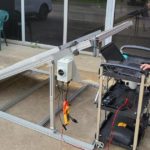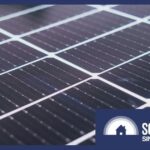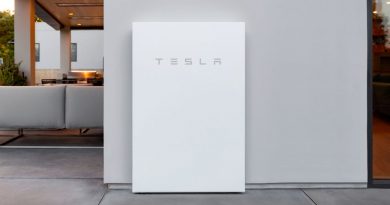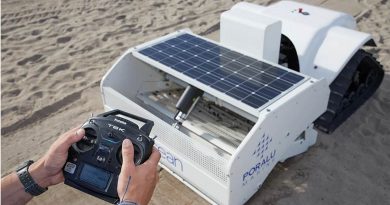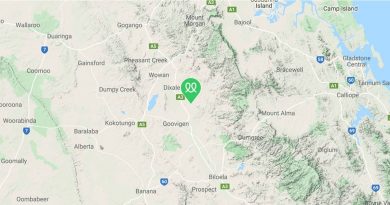More Grants For Solar Panel And Battery Recycling/Reuse
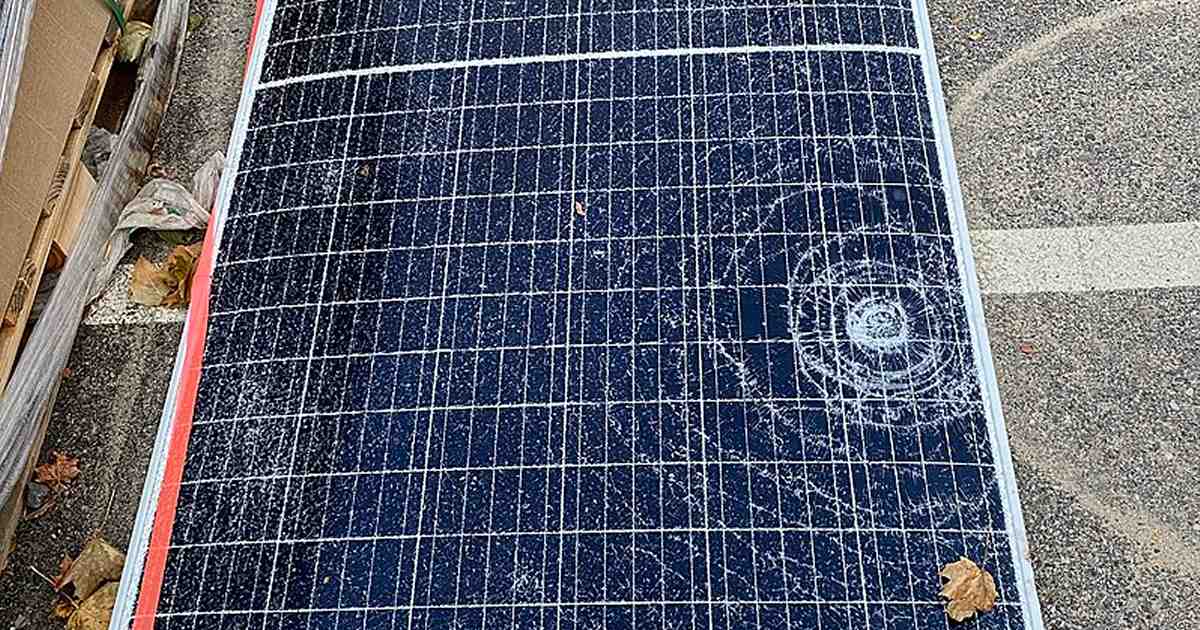
Image: ArnoldReinhold, CC BY-SA 4.0
A new round of NSW Government grants for innovative projects reusing and managing solar panel and battery waste kicked off yesterday.
While good quality solar panels should perform well for decades, it’s an unfortunate fact not all panels installed in Australia have been in this category and their working lives are cut short.
Additionally, the nature of Australia’s “solar rebate” means a generous subsidy can be secured for each new solar power system installed. This leads to “out with the old and in with the new” at times when systems are upgraded, even if the panels are still working perfectly well.
Sometimes solar panel waste is created through just bad luck; for example, particularly severe weather events such as freak hail storms.
Regardless of the circumstances under which this waste is created, keeping panels out of landfill is preferable if possible and economically viable – and that may mean costs related to end-of-life issues are factored into prices for panels (and batteries) in the future.
According to the EPA, NSW alone could generate 3,000 – 10,000 tonnes of solar panel and battery storage waste a year by 2025, with this figure jumping to 40,000 – 71,000 tonnes per year a decade later.
In an effort to get systems in place to better manage this waste1, the NSW Government created the $10 million Circular Solar grants program. Phase 1 of the program recently awarded a bit over $1.1 million in funding for two projects.
Newcastle-based Blue Tribe Co. received $217,800 to trial the use of pre-loved solar panels for a community solar project, and testing the feasibility of selling these panels in a secondary marketplace.
$935,750 went to Wagga Wagga-based solar installation firm Solar Professionals to set up what it believes to be a first-of-its-kind automated recycling facility able to recover all raw materials and components from end-of-life solar panels without cross contamination. Among its partners in the project is Deakin University.
“Both of these projects are underway, and now we’re looking forward to seeing what exciting new ideas we receive in grant applications during this second round,” said NSW EPA Engagement, Education and Programs Director Liesbet Spanjaard
Circular Solar – Round 2
In this new round, $7 million is on offer across three streams:
- new infrastructure and expansions ($3.5 million funding cap per project)
- research and development for reuse, second-hand or refurbished items and market development for recovered materials ($100,000 – $1 million funding cap per project)
- collection and recovery logistics. ($500,000 – $1 million funding cap per project)
Applicants are to initially complete an expression of interest outlining their proposed projects, which will be assessed by an independent Technical Review Committee that will whittle those down to a shortlist. Those shortlisted will then have six weeks to develop final grant applications, complete detailed budgets and cost-benefit and financial analyses. The TRC will review and make its recommendations as to which projects should qualify for a grant.
EOI submissions close at COB on 4 November 2021. Further information on round 2 of Circular Solar can be viewed here.
There have been lots of interesting ideas around the place for reusing and recycling solar panels, so it’s good to see the New South Wales Government offering the Circular Solar grants to assist in exploring these potential solutions further.
Footnotes
- On a related note: at a Federal level, Minister for the Environment Sussan Ley first put the Australian solar industry on notice about solar panel waste in mid-June this year, and then a week later set a deadline for an industry-led nationwide scheme design to be finalised by June 2022. This ruffled some feathers at the Clean Energy Council as the CEC said it had worked to develop a comprehensive national plan, but the Federal government walked away from the partnership.
Original Source: https://www.solarquotes.com.au/blog/solar-panel-battery-waste-mb2167/
